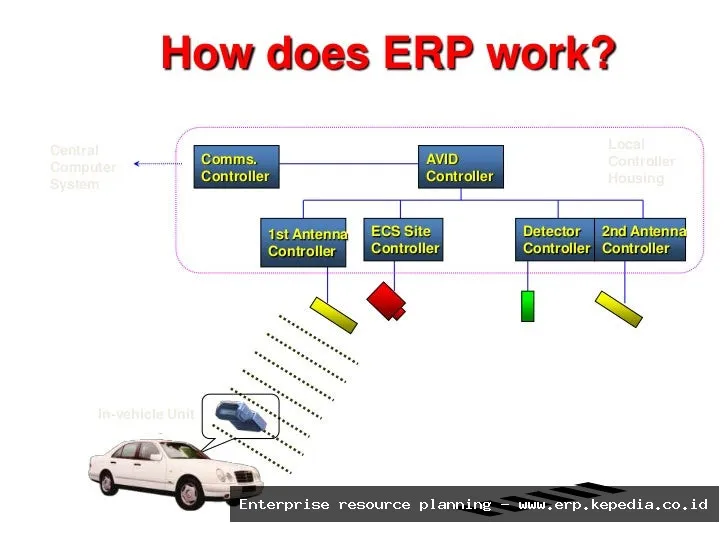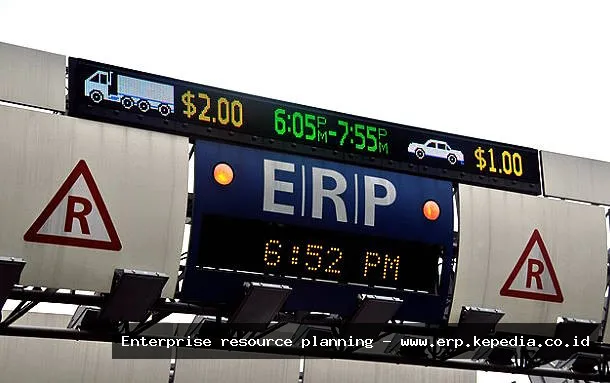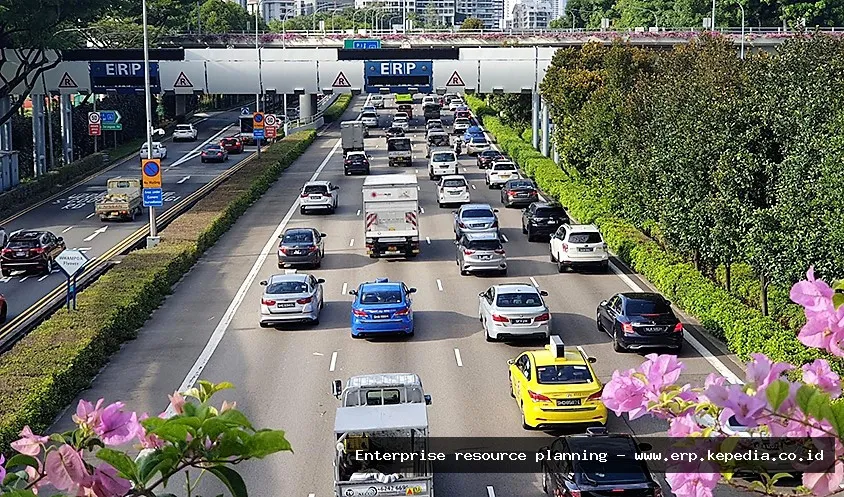ERP Software For Road Pricing: Complete Guide, Features and Details
Road pricing, also known as congestion pricing or value pricing, is a strategy for managing traffic congestion by charging drivers a fee to use certain roads or areas, particularly during peak hours. The implementation of a road pricing system is a complex undertaking that requires sophisticated technology and robust management infrastructure. Enterprise Resource Planning (ERP) software plays a crucial role in streamlining and optimizing the various processes involved, from toll collection and enforcement to financial management and reporting. Choosing the right ERP system is critical for the successful operation and long-term viability of any road pricing initiative.
Think of ERP software as the central nervous system for a road pricing system. It’s not just about collecting tolls; it’s about integrating all the different departments and functions to work together seamlessly. Imagine the data flowing from the toll collection points, through the billing system, into the financial reports, and ultimately informing future infrastructure planning. Without a robust ERP, you’re left with disconnected silos of information, leading to inefficiencies, errors, and potentially, public dissatisfaction. That’s why understanding the capabilities and features of ERP software specifically designed for road pricing is so important.

This article will serve as a complete guide to ERP software for road pricing, exploring its key features, benefits, and the considerations businesses should make when selecting a solution. We’ll delve into the specific functionalities that make an ERP system suitable for this unique application, from real-time data processing to advanced analytics and reporting. By the end, you’ll have a solid understanding of how ERP software can transform road pricing from a logistical nightmare into a well-oiled machine that effectively manages traffic flow and generates revenue for infrastructure improvements.
Understanding the Role of ERP in Road Pricing
ERP systems, traditionally used in manufacturing, retail, and other industries, have adapted to serve the unique needs of transportation and infrastructure management. In the context of road pricing, an ERP system provides a centralized platform for managing all aspects of the operation, from toll collection and revenue management to customer relationship management and regulatory compliance. This integration is crucial for efficiency, transparency, and accountability.
Core Functions Supported by ERP in Road Pricing
ERP systems for road pricing typically encompass a range of functionalities, including:
- Toll Collection and Management: This is the most fundamental aspect, involving the collection of tolls through various methods (e.g., electronic toll collection, license plate recognition) and the subsequent management of transaction data.
- Customer Account Management: Managing customer accounts, including registration, billing, payment processing, and customer support.
- Financial Management: Handling financial transactions, including revenue accounting, expense tracking, and financial reporting.
- Enforcement and Violation Management: Identifying and managing toll violations, including issuing notices, processing payments, and tracking legal proceedings.
- Reporting and Analytics: Generating reports on traffic patterns, revenue trends, and system performance to inform decision-making.
- Integration with External Systems: Connecting with other systems, such as traffic management systems, law enforcement databases, and payment gateways.
Benefits of Implementing ERP in Road Pricing
The implementation of an ERP system in road pricing offers several significant benefits:. For more information, you can refer to ERP as an additional resource.
- Improved Efficiency: Automating processes and streamlining workflows reduces manual effort and improves operational efficiency.
- Enhanced Accuracy: Centralized data management and automated validation minimize errors and improve data accuracy.
- Increased Transparency: Real-time access to data and comprehensive reporting capabilities enhance transparency and accountability.
- Better Decision-Making: Data-driven insights enable informed decision-making regarding pricing strategies, infrastructure investments, and operational improvements.
- Reduced Costs: Optimizing processes and minimizing errors can lead to significant cost savings.
- Improved Customer Service: Efficient customer account management and responsive support improve customer satisfaction.
- Enhanced Regulatory Compliance: Centralized data management and reporting facilitate compliance with relevant regulations and standards.
Key Features of ERP Software for Road Pricing
Not all ERP systems are created equal, especially when it comes to road pricing. Certain features are essential for effectively managing the complexities of this specific application. Here are some key features to look for in ERP software for road pricing:
Real-Time Data Processing and Analysis
The ability to process and analyze data in real-time is crucial for monitoring traffic conditions, identifying congestion hotspots, and adjusting pricing strategies accordingly. This requires a system that can handle large volumes of data from various sources, such as toll collection points, traffic sensors, and weather feeds, and provide timely insights to operators.
Advanced Billing and Payment Processing
The ERP system should support a variety of billing and payment options, including electronic toll collection (ETC), license plate recognition (LPR), prepaid accounts, and post-paid billing. It should also be able to handle complex pricing models based on factors such as time of day, vehicle type, and distance traveled. Secure and reliable payment processing is essential for maintaining customer trust and ensuring revenue collection.
Comprehensive Customer Relationship Management (CRM)
Effective customer relationship management is crucial for attracting and retaining customers. The ERP system should include a CRM module that allows operators to manage customer accounts, track interactions, and provide personalized service. This includes features such as online account management, automated email notifications, and a customer support portal.
Robust Enforcement and Violation Management
A robust enforcement and violation management system is essential for deterring toll evasion and ensuring revenue collection. The ERP system should be able to identify and track toll violations, issue notices, process payments, and manage legal proceedings. Integration with law enforcement databases can further enhance enforcement efforts.
Detailed Reporting and Analytics
The ERP system should provide comprehensive reporting and analytics capabilities to track key performance indicators (KPIs) and identify areas for improvement. This includes reports on traffic patterns, revenue trends, system performance, and customer satisfaction. Data visualization tools can help operators understand complex data and make informed decisions.
Integration Capabilities
The ERP system should be able to integrate seamlessly with other systems, such as traffic management systems, law enforcement databases, payment gateways, and financial accounting systems. This integration is crucial for ensuring data consistency and streamlining workflows.
Choosing the Right ERP Solution for Road Pricing
Selecting the right ERP solution for road pricing is a critical decision that can significantly impact the success of the project. Here are some key considerations to keep in mind during the selection process:
Assess Your Specific Needs
Before evaluating ERP vendors, take the time to thoroughly assess your specific needs and requirements. Consider factors such as the size and complexity of your road network, the volume of traffic, the number of customers, and the level of integration required. Develop a detailed list of functional and technical requirements to guide your evaluation.
Evaluate Vendor Experience and Expertise
Choose a vendor with experience and expertise in implementing ERP systems for road pricing. Look for vendors with a proven track record of success and a deep understanding of the unique challenges and requirements of the industry. Ask for references and case studies to learn about their experience with similar projects.
Consider Scalability and Flexibility
The ERP system should be scalable and flexible to accommodate future growth and changing business needs. Choose a system that can handle increasing volumes of data and transactions, and that can be easily customized to meet evolving requirements. Cloud-based ERP solutions offer greater scalability and flexibility compared to on-premise solutions.

Evaluate Security and Compliance
Security and compliance are critical considerations for any ERP system, especially in the context of road pricing, where sensitive customer data is involved. Choose a system that meets industry security standards and complies with relevant regulations, such as GDPR and PCI DSS. Ensure that the vendor has robust security measures in place to protect data from unauthorized access and cyber threats.
Consider Total Cost of Ownership (TCO)
Evaluate the total cost of ownership (TCO) of the ERP system, including software licenses, implementation costs, maintenance fees, and hardware costs. Compare the TCO of different solutions to determine which offers the best value for your money. Consider the long-term costs of ownership, such as upgrades and support.
Prioritize User-Friendliness and Training
The ERP system should be user-friendly and easy to learn. Choose a system with an intuitive interface and comprehensive training materials. Provide adequate training to your staff to ensure that they can effectively use the system and maximize its benefits.
Implementation Challenges and Best Practices
Implementing an ERP system for road pricing can be a complex and challenging undertaking. Here are some common challenges and best practices to keep in mind:
Data Migration and Integration
Migrating data from legacy systems and integrating with other systems can be a major challenge. Ensure that you have a well-defined data migration plan and that you thoroughly test the integration with other systems. Consider using data migration tools to automate the process and minimize errors.
Change Management
Implementing an ERP system can require significant changes to business processes and workflows. Develop a comprehensive change management plan to address resistance to change and ensure that employees are properly trained and supported. Communicate the benefits of the new system and involve employees in the implementation process.
Customization and Configuration
While customization can tailor the ERP system to your specific needs, excessive customization can lead to increased costs and complexity. Strive to minimize customization and leverage the standard features of the system as much as possible. Configure the system to meet your specific requirements without making extensive modifications to the underlying code.
Testing and Quality Assurance
Thorough testing and quality assurance are essential for ensuring that the ERP system is functioning correctly and that it meets your requirements. Develop a comprehensive testing plan and involve users in the testing process. Conduct both functional testing and performance testing to ensure that the system can handle the expected volume of data and transactions.
Ongoing Support and Maintenance
Ongoing support and maintenance are crucial for ensuring the long-term success of the ERP system. Choose a vendor that provides reliable support and maintenance services. Establish a clear process for reporting and resolving issues. Regularly update the system to address security vulnerabilities and improve performance.
The Future of ERP in Road Pricing
The future of ERP in road pricing is likely to be shaped by several key trends, including:
Cloud Computing
Cloud-based ERP solutions are becoming increasingly popular due to their scalability, flexibility, and cost-effectiveness. Cloud ERP offers several advantages for road pricing, including reduced infrastructure costs, improved accessibility, and enhanced security.
Artificial Intelligence (AI) and Machine Learning (ML)
AI and ML are being increasingly used to automate tasks, improve decision-making, and enhance customer service. In road pricing, AI and ML can be used to predict traffic patterns, optimize pricing strategies, and detect toll violations.
Internet of Things (IoT)
The Internet of Things (IoT) is enabling the collection of real-time data from various sources, such as traffic sensors, cameras, and connected vehicles. This data can be used to improve traffic management, optimize pricing strategies, and enhance enforcement efforts.
Mobile Technology
Mobile technology is transforming the way that road pricing is managed and accessed. Mobile apps can be used for customer account management, payment processing, and reporting. Mobile devices can also be used for enforcement and violation management.
In conclusion, ERP software plays a vital role in the successful implementation and operation of road pricing systems. By understanding the key features, benefits, and considerations discussed in this guide, businesses can choose the right ERP solution to meet their specific needs and effectively manage traffic flow, generate revenue, and improve customer satisfaction.

Conclusion
In conclusion, the implementation of ERP software for road pricing represents a significant advancement in transportation management. As we’ve explored, leveraging ERP systems offers a centralized and integrated approach to handling the complexities of toll collection, financial management, and data analysis associated with road usage charging. The benefits, ranging from enhanced efficiency and transparency to improved revenue generation and data-driven decision-making, are substantial and contribute to the overall sustainability and effectiveness of road pricing schemes.
Ultimately, the successful adoption of ERP solutions is paramount to realizing the full potential of road pricing as a tool for congestion management and infrastructure funding. As transportation authorities and private operators continue to grapple with the challenges of modern traffic demands, investing in a robust ERP system is not merely a technological upgrade, but a strategic imperative. We encourage stakeholders to carefully evaluate their needs and explore the ERP options available to them, ensuring a future where road pricing contributes to a more efficient and equitable transportation ecosystem. Learn more about specific ERP solutions for road pricing by visiting our comprehensive guide.
Frequently Asked Questions (FAQ) about ERP software for road pricing
What are the key benefits of implementing an ERP system specifically designed for road pricing and toll collection?
Implementing an ERP system tailored for road pricing and toll collection offers numerous benefits. Primarily, it provides centralized management of all operational aspects, from transaction processing and revenue management to customer account management and reporting. This integrated approach improves efficiency and reduces operational costs. An ERP system also enhances data accuracy and transparency, enabling better decision-making based on real-time insights. Furthermore, it facilitates compliance with regulatory requirements and industry standards. Finally, a dedicated ERP can streamline reconciliation processes, minimize revenue leakage, and improve overall financial control. The ability to scale and adapt to future changes in road pricing schemes is also a significant advantage.
How does ERP software for road pricing handle the complexities of different tolling methods, such as free-flow tolling, congestion pricing, and distance-based charging?
Effective ERP software for road pricing is designed to handle the intricacies of various tolling methodologies. For free-flow tolling, the system integrates with technologies like DSRC (Dedicated Short Range Communication) or ANPR (Automatic Number Plate Recognition) to automatically identify vehicles and process transactions without requiring them to stop. In the case of congestion pricing, the ERP system can dynamically adjust toll rates based on real-time traffic conditions, integrating with traffic management systems to optimize pricing strategies. For distance-based charging, the system tracks the distance traveled by vehicles, often utilizing GPS or other location-based technologies, and calculates tolls accordingly. The ERP system then consolidates this data, ensuring accurate billing and reporting, regardless of the specific tolling method employed. It also manages exceptions and handles disputes effectively.
What security measures are crucial for ERP software used in road pricing to protect sensitive financial and vehicle data, and ensure compliance with data privacy regulations?
Security is paramount for ERP software managing road pricing operations. Robust data encryption, both in transit and at rest, is essential to protect sensitive financial and vehicle information. Strong access control mechanisms, including role-based access and multi-factor authentication, limit access to authorized personnel only. Regular security audits and penetration testing identify and address vulnerabilities. Furthermore, the ERP system must comply with relevant data privacy regulations like GDPR (General Data Protection Regulation) or CCPA (California Consumer Privacy Act), which includes implementing data anonymization techniques and providing individuals with control over their data. Intrusion detection and prevention systems are also vital for monitoring and responding to potential security threats in real-time. Finally, a comprehensive disaster recovery plan ensures business continuity in the event of a security breach or system failure.